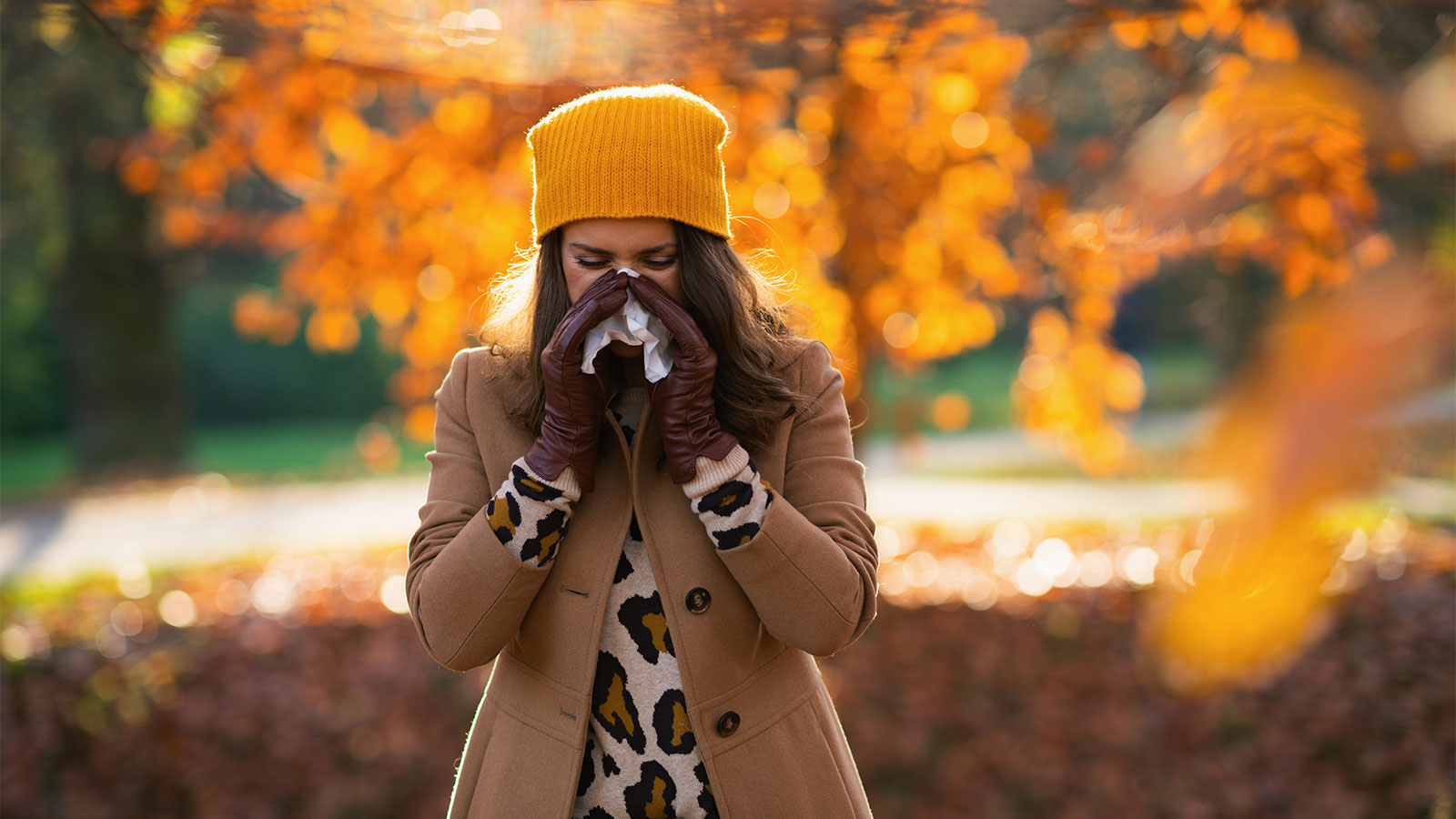Several Treatments and Lifestyle Changes Can Help Manage Your Allergy Symptoms
Sneezing, itchy eyes, runny noses — all telltale signs that allergy season has arrived. But whether blooming trees or freshly mowed grass have you reaching for the tissues, there are ways to find relief.
“Preparation is key when it comes to managing seasonal allergies,” says Neil Baman, MD, an allergist and immunologist at Geisinger. “This can include getting to know your personal triggers, starting medications and making a few changes to your daily habits.”
Here’s how Dr. Baman suggests dealing with seasonal allergies, no matter the time of year.
What causes seasonal allergies?
Seasonal allergies are caused by environmental factors like pollen from trees, grasses or weeds. Changing temperatures and weather can make them worse.
When your body is exposed to something you’re allergic to, your immune system reacts (or overreacts) by trying to remove the allergen from your system. These reactions often cause allergy symptoms that can include:
- Sneezing
- Itchiness
- Coughing
- Runny nose
- Hives
- Swelling
- Anaphylaxis (a severe, potentially life-threatening allergic reaction)
“For most people, these symptoms are usually mild,” says Dr. Baman. “Knowing how to prevent and treat seasonal allergies can reduce their impact on your daily life.”
Stock up on seasonal allergy medications
Reduce and manage your allergy symptoms with medications like antihistamines, steroidal nasal sprays and eye drops — together or separately.
Antihistamines
Antihistamines are over-the-counter medications that tame your body’s allergic response.
“Some antihistamines can cause drowsiness, so be sure you know how the medication affects you before operating any heavy machinery, including driving your car,” cautions Dr. Baman.
Nasal sprays
Steroidal nasal sprays help you breathe easier by easing inflammation in your nose. Most allergy nasal sprays are available over the counter and are usually used for one to two sprays per day, per nostril.
“Steroid nasal sprays are not the same as decongestant nasal sprays, as they can be used longer than decongestants,” says Dr. Baman. “There are also antihistamine nasal sprays available, but you’ll need a prescription for these.”
Eye drops
Eye drops control the itchiness and watering that come with seasonal allergies. Some of these drops are available over the counter and others through a prescription from your doctor.
Always remember to take out contact lenses before using your eye drops.
Keep an eye on pollen counts
The thing about pollen? It’s not always easy to see. Thankfully, many weather and air quality apps now include reports on allergen levels and pollen counts.
Before venturing outside, check pollen levels in your area and consider adjusting your plans if allergens are high. When your plans include something that involves a lot of pollen — like gardening or mowing the grass — consider wearing a special filter mask, sunglasses and gloves.
Dr. Baman also suggests:
- Changing into new clothes when coming in after being outside. This keeps you from tracking pollen inside.
- Showering before bed to wash off any pollen from the day.
- Thoroughly vacuuming and cleaning your home often to lower indoor pollen levels.
- Cleaning or changing your air filters regularly to make sure they aren’t full of pollen.
Consider alternative treatments for seasonal allergies
When your hands are dirty, you wash them. This allergy season, consider doing the same for your nose.
“Tools like neti pots and saline rinses can flush out mucus and pollens irritating your sinuses,” says Dr. Baman.
If you use a neti pot, be sure to carefully follow the instructions and make sure you’re using purified or distilled water. Using tap water increases the risk of life-threatening infections.
When to see an allergist for seasonal allergies
Not finding relief? You don’t have to wait for allergy season to end. An allergist can give you insights into what’s causing your allergies and even help cure them.
“After determining what indoor and outdoor allergens you’re allergic to, your provider can create personalized immunotherapy injections to decrease your symptoms,” explains Dr. Baman. “These shots contain small doses of the allergens to build up your immunity.”
Don’t let your allergies get overly uncomfortable or make breathing difficult. Talk to your doctor about ways to lessen your symptoms.




























